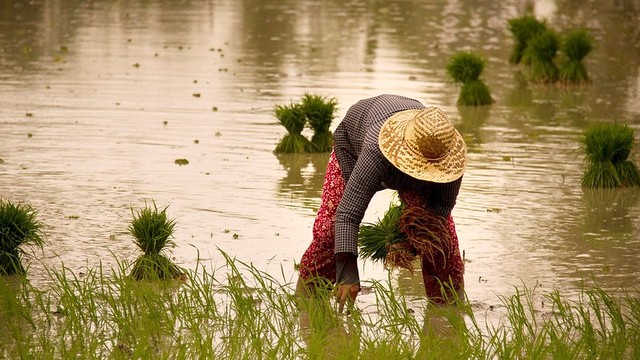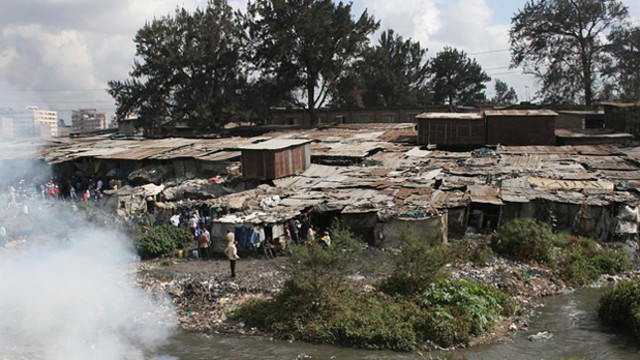Two years’ work culminated in the launch last week of the UK government’s Foresight report on the Future of Food and Farming: Challenges and Choices for Global Sustainability. I was part of a group of ‘lead experts’, chaired by zoologist Charles Godfray, that was formed to advise the Foresight team throughout.
The project asked the question: how can the world feed itself in 2050 sustainably and equitably? It commissioned more than 100 peer-reviewed papers — from analyses of population projections to economic models of future food prices to regional studies of climate impacts. Our task as the lead expert group has been to sift through this mass of documents and derive clear messages about what needs to be done, by whom, when and how.
Tough challenges
One thing is clear — feeding the world sustainably and more fairly requires us to overcome several substantial hurdles. The world’s population is expected to grow by nearly a third by 2050, when there will be nine billion people. Economies are also growing, and as incomes rise, diets will likely shift towards more energy-intensive foods, especially meat and dairy products. And climate change will impact rainfall patterns and temperatures, bringing harsher growing conditions to many parts of the tropics while more northerly areas will see longer growing seasons.
Agriculture and the broader food system produce a lot of greenhouse gases — nitrous oxide from chemical fertilisers, methane from livestock and rice paddies, and carbon dioxide from land clearance and ploughing. We urgently need to find ways of reducing these emissions; for example, by better managing soil organic matter, minimising soil disturbance, and bringing nitrogen-fixing crops back into farming cycles.
At the same time, we must protect forests and watersheds from agricultural expansion, so that we can reap the valuable ‘ecosystem services’ they provide, such as sequestering carbon, harbouring biodiversity and regulating water supplies.
In essence, we need to grow more food, on the same land, with fewer impacts.
Action on all fronts
It’s not an impossible task — but we need to combine knowledge systems, policy, science and market forces to do it.
We must both boost yields in the many areas where performance still lags behind potential, and invest in new science to address the ever-changing constraints in agriculture. Evidence shows that it takes an awfully long time for innovation systems to deliver new ways of farming. Two decades or more can pass before research on new crop varieties finds its way onto farmers’ fields. If we want to engineer major changes in both seeds and breeds, as well as agronomy and soil-water management, we must start now, building bridges between farmers and research systems.
The Foresight report clearly shows that today’s food system is failing. Nearly one billion people in the world are ‘hungry’, another billion are poorly nourished and a further billion are overfed.
But we don’t have to live in a world where more than a quarter of people have inadequate food supplies. These are political choices — governments can choose to address the needs of the poor, or ignore them. Politics doesn’t usually work in favour of poor people, but some leaders have shown that it can. President of Brazil, Lula da Silva, has made poverty reduction and feeding the poor one of his top priorities.
I have really enjoyed being part of the Foresight team. I have learnt a lot both about how other stakeholders in the food security debate view the world and the problems we face, and about the value and limits of other disciplines. And it has forced us to work together to tease a clear and simple message out of complex material.
The next challenge is to take this message into national and international arenas to engage with policymakers, researchers and development agencies, so we can start achieving the shifts in policy and practice we need to make global food security fairer and more sustainable.




